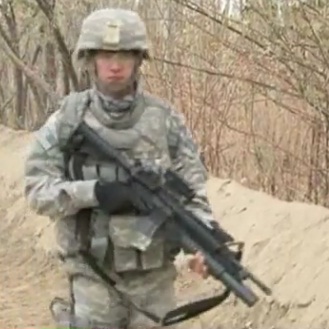Pentagon Demands To Keep Nine Bases In Afghanistan After 2014

KABUL: The United States has demanded nine permanent military bases in Afghanistan, something that has long fuelled concerns among regional countries, President Hamid Karzai said on Thursday.
In the bilateral Security Agreement (BSA) being negotiated between the allies, the president said: “The United States insists on its demands and interests and we stick to our own.”
Addressing a ceremony at the Kabul University, he said Washington had sought military bases in Nangarhar, Parwan, Balkh, Kabul, Paktia, Kandahar, Helmand and Herat provinces.
Iran and Russia have repeatedly opposed a permanent American military presence in Afghanistan, fearing it may exacerbate insecurity in their neighbourhood.
Given the fact that Afghanistan was going through a critical phase of history, his administration was doing its bit to exercise caution in taking important decisions, he observed.
He underlined the need for concrete steps to ensure a better future for the conflict-torn country, notably durable peace and economic security. With this in mind, Afghanistan had signed a strategic pact with the US, he said.
In return for the military bases, Afghanistan wanted the US to ensure its stability, strengthen its economy and equip its armed forces, the president explained.
Karzai believed the presence of US and other foreign troops after 2014 would be in Afghanistan’s interest, but the world had accord primacy to boosting its security forces.
“If they do it, we are ready to sign the BSA with America,” remarked the president, hinting at separate agreements with the NATO states that wanted to stay in Afghanistan after next year’s withdrawal of foreign combat troops.
The president tended to allay concerns about America’s continued presence in his country, saying Afghanistan desired robust ties to its neighbours. He hailed as a success his recent trip to Denmark, Finland and Poland.

